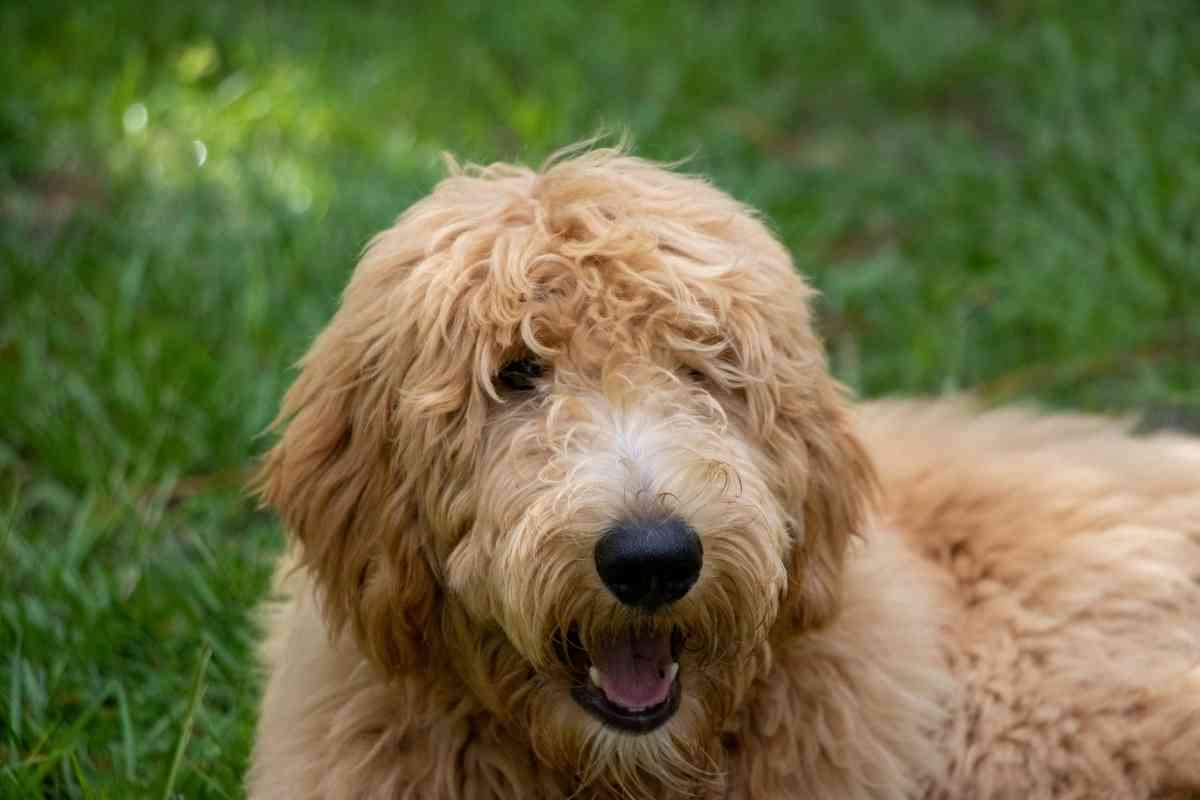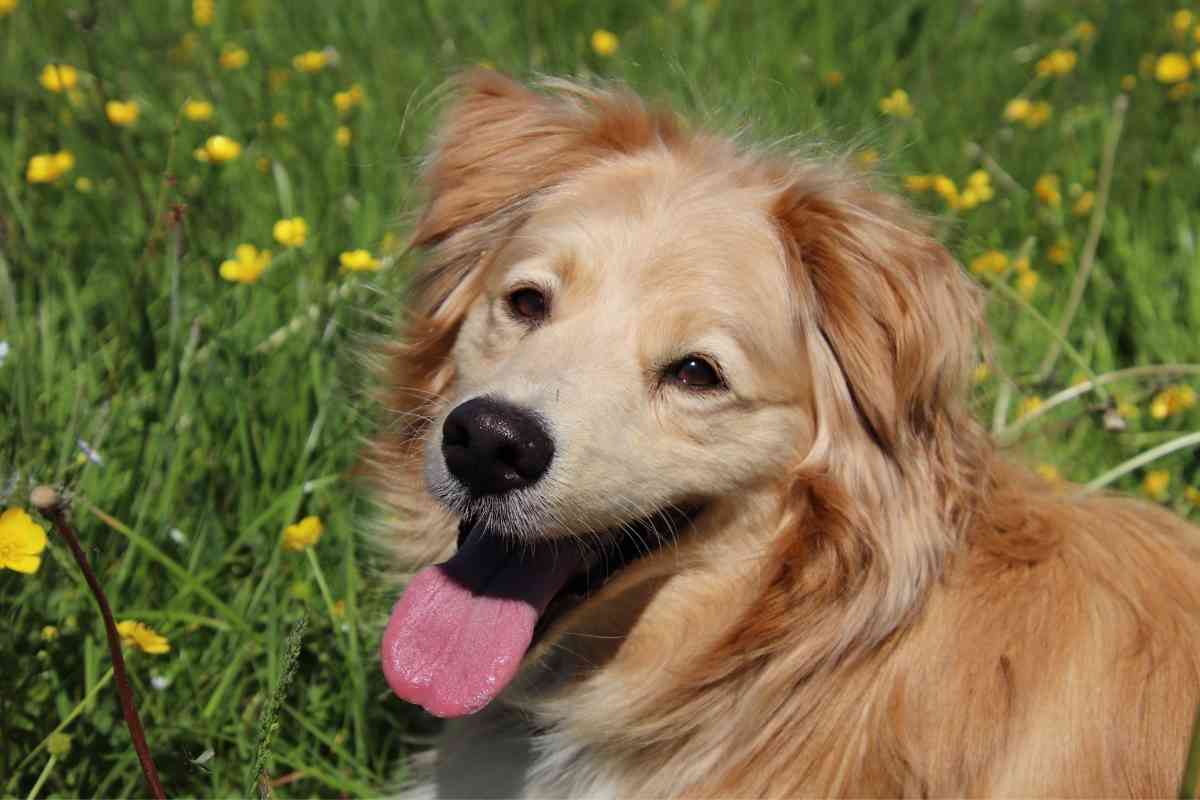What are Multigen Goldendoodles?
There are many types of Goldendoodles that you can choose to bring home.
The type will often depend on the parents and grandparents of the dog and how they were combined together to make the offspring.
While the original Goldendoodle is a mixture of Poodle and Golden Retriever, it is possible that different combinations can be used in subsequent generations.
This can help us get a multigene Goldendoodle.
What are Multigen Goldendoodles?
A multigene Goldendoodle is the product of breeding two Goldendoodles beyond their second generation (F2). This means that both the parents and the grandparents of the new multiegene dog are also Goldendoodles. While it may vary, most breeders are going to consider any generation of F3 or beyond to be a multigene Goldendoodle.
There are different breeding combinations that you can use to get to this type of Goldendoodle.
Let’s take a closer look at what a multigen Goldendoodle is and why this can be a great option for you to bring into your family.
The Goldendoodle is a mixture of a Poodle and a Golden Retriever.
These two were put together with the hopes of producing a crossbreed that would have the high intelligence and the low shedding of a Poodle along with the sweet temperament of the Golden Retriever.
This new designer dog is gaining in popularity and many families are finding how great the Goldendoodle will be for their needs.
This dog is not only smart, loyal, affectionate, and friendly but they are a great addition to the family for those who have allergies.

Because of the rise in popularity of this dog, there are now multigene, or multi-generational, Goldendoodles.
This is the product of breeding two Goldendoodles beyond the second generation.
This means that the dog’s parents and the grandparents are Goldendoodles rather than a purebred Golden Retriever and Poodle.
Most breeders will consider the F3 generations and beyond to fall under the category of multigene.
Various combinations of breeding can be used to help increase the likelihood of desired traits that.
You would like in your Goldendoodle including a coat that is less likely to shed for those who have serious allergies.
What are the Benefits of a Multi-Generational Goldendoodle?
Many of the multi-generational Goldendoodles are going to have more of the Golden Retriever in their bloodline compared to their parents, which means that they are more likely to be closer to the Retriever rather than the Poodle.
This can be a benefit to those who are more concerned with getting a dog that has a great personality rather than worrying about the appearance.
Poodles are great dogs, but they are not as easy going and relaxed as the Retriever is.
Adding more of the Golden Retriever into the mix can help produce a more enjoyable dog.
However, since the dog is still mixed in with some of the Poodle genes, you get the benefit of low shedding and allergy free that you want with this kind of dog.
They may shed more than some of the earlier versions of the Goldendoodle who have more of the Poodle in them, but their temperament can be a lot of fun.
One of the drawbacks that can come with a multi-generational Goldendoodle is that the further that the generation gets from the original purebred breeds, the less of the hybrid vigor they will have.
Hybrid vigor is going to be the overall good health that crossbred dogs are able to get. For example, there are certain types of cancer that will show up in a Golden Retriever.
These are often not seen in multi-generational Goldendoodles.
This hybrid vigor does not mean that the dog is never going to run into any health concerns. And if you use a low-quality breeder to help with some of this, then you could end up with more health conditions in the dog.
It is important to be careful about the breeder and the dogs that you choose to get.
What Types of Coat Can a Multigen Goldendoodle Have?
Another question that some dog owners are going to look at with the multi-generational Goldendoodle is the type of coat they have.
The exact coat they will get will depend on their parents and exactly how their breeding is set up to go.
Some of the different types of coats that you are able to experience with this dog include:
- Wavy: This can show up in all generations of the Goldendoodle and it is pretty common in multigens. It is also known as the teddy bear coat and gives them a shaggy appearance. It is often low shedding.
- Curly coat: This is another common option out there and will consist of loose curls, tight curls, or sometimes curls that are in between. This is the lowest shedding of the coat and can look very similar to the Poodle. You will need to groom it well to keep it from matting up.
- Straight coat: This can happen thanks to the genes from the Golden Retriever, though it will often be fluffier. This is the easiest of the coat types to care for because it just needs a bit of brushing. It is also the one that is more likely to shed. This shows up when more of the Golden Retriever genes are present.

While it is not that common thanks to the availability of DNA testing, there is one other possibility that can come up with the multigens and that is the improper or flat coat.
Dogs that have this kind of coat are going to resemble the Golden Retriever and will shed quite a bit.
They may also lack the long facial hair on the eyebrows, beard, and the mustaches.
This type of hair is not that desirable in the Goldendoodle for a number of reasons.
It sheds a lot, which is something that owners of Goldendoodles do not want, and it is not going to have the curly or wavy hair that often helps to show that the breed is a Goldendoodle.
Thanks to DNA testing for the dogs, it is less likely to show up.
What is the Best Generation of Goldendoodle?
There are many types of generations when it comes to the Goldendoodle you would like to own. Some will choose one type over the other and it does depend on what you are looking for within the dog for which generation will be the best for you.
Some examples of this include:
- Do you want to keep shedding down to a minimum to avoid allergens? Then the F1b or F2b are the best generations.
- Do you want the healthiest cross of the two dogs with the most vigor in the hybrid? Then you will want to focus on the F1 generation.
- Want a dog that has a very low maintenance coat? Then F2 or F2b are the best options here.
- Want your Goldendoodle to have a temperament that is similar to the Golden Retriever? Then the F3 and beyond are the best options.
- Want to have the Goldendoodle be more like a Poodle? Then the F1b or the F2b are often the best.
This is part of the fun of getting a Goldendoodle in your home.
There are breeds open for everyone based on your preferences and what you seem to like the most.
Keep in mind that each dog is unique and may not follow the outline that is listed above.
Even if you get a dog within a certain generation, they are all unique and can bring their own something special to the table.
Are Multigen Goldendoodles Better?
This will depend on the type of dog that you would like. Many owners love this kind of dog and like the temperament that is friendly and very loyal.
However, some prefer to go with a Goldendoodle that has more of the Poodle inside of it.
It all depends on what you are looking for when you bring home a Goldendoodle puppy.
The truth is that these Goldendoodles are going to be wonderful pets that have some of the special traits that seem to show up with them.
They have a great personality and are adorable to look at.
You will find though that all generations and varieties of the Goldendoodle can make great pets so any of them that you decide to add to your family will be a great decision.
They are intelligent, affectionate, and very friendly, making them the perfect addition to any family.
Choosing the Right Goldendoodle Generation
As you are looking for a great Goldendoodle to add to your family, it is important to consider all the different types.
Since this dog can be mixed together out of two breeds, there are many variations that come with it to make it truly extraordinary overall.
Each one is amazing and brings something new to the table so you are sure to find the perfect breed for all of your needs.